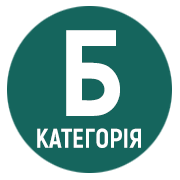IN THE PROJECTION OF TWO CULTURES: MYTHOLOGISM AS THE FOUNDATION OF W. WHITMAN'S AND B.-I. ANTONYCH'S ARTISTIC CONSCIOUSNESS
DOI:
https://doi.org/10.32782/2412-933X/2024-XX-3Keywords:
myth, mythopoetic consciousness, mythopoetic elements, symbols, contemporary culture, archetypal memory, national self-awarenessAbstract
This article is devoted to the mythopoetic consciousness of Walt Whitman and B.-I. Antonych, emphasizing their unique approach to national and religious themes in folk life. Both poets drew inspiration from the ancient faith of their ancestors, considering it the wellspring of their creativity. Archetypes, symbols, motifs, and images from the archetypal memory served as carriers of sociocultural, historical, and archetypal memory, reflecting the essence of their respective cultures. W. Whitman and B.-I. Antonych became advocates for national self-awareness, emphasizing the potential loss of millennia-old cultures if these values were neglected. The author challenges the perception of myth as exclusively linked to archaic thinking, asserting its continued presence in contemporary culture. Myth is portrayed as a distinct form of worldview, deeply embedded in human consciousness, with examples ranging from political ideologies to advertising. So the work explores the intricate interaction between literature and myth, emphasizing the dual nature of folklore as a cultural intermediary. The author argues for the systematic study of mythological motifs in contemporary culture, considering their widespread presence and impact. Solar archetypal images and symbols, particularly the Sun, are highlighted in W. Whitman’s and B.-I. Antonych’s works. The poets attribute profound significance to these symbols, viewing them as life-giving forces and symbolic embodiments of the divine. The synthesis of mythopoetic elements in their works reflects a deep connection to primal beliefs and mythological consciousness. Overall, the article is devoted to the exploring the poets' mythopoetic consciousness, emphasizing their use of archetypes and symbols to shape cultural narratives and values. It underscores the enduring relevance of myth in contemporary culture and literature, portraying it as a dynamic force shaping the collective psyche across time.
References
Радіонова Н. В. Філософсько-антропологічні інтенції творчості М. В. Гоголя : автореф. дис. на здобуття наук. ступеня канд. філос. наук: 09.00.04 «Філософська антропологія, філософія культури». Київ, 2000. 19 с.
Волобуєва О. В. Синкретизм поганських та християнських вірувань в українському фольклорі. URL: http://referats.lutsk.ua/case.php?refid=1146/ (дата звернення: 20.10.2009).
Грубінко В., Степанюк А. Від антропоцентризму – до біоцентризму. Вісник Національної академії наук України. № 4. 2002. URL: http: //www.nbuv.gov.ua/portal/herald/2002-04/index.htm (дата звернення: 02.11.2008).
Антонич Б. І. Повне зібрання творів. Передмова Миколи Ільницького ; Упорядкування і коментарі Данила Ільницького. Львів : Літопис, 2009. 968 с. + 32 с. ілюстр.
The Walt Whitman Archive URL: https://whitmanarchive.org/published/LG/1855/poems (дата звернення: 02.02.2024).
Антонич Б.-І. Велика гармонія: модерністична поезія ХХ ст. Б.-І. Антонич. Київ, 2003. 305 с.
Войтович В. Українська міфологія. Київ : Либідь, 2002. 664 с.
Творчі паралелі: Волт Вітмен та Богдан-Ігор Антонич : монографія. Донецьк : ЛАНДОН-ХХІ, 2012. 167 с.






